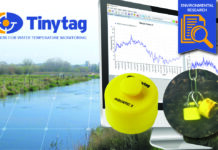
This article contains sponsored content.
Italy, known for its rich industrial heritage and technological prowess, is making significant strides in the field of automation, particularly in forklift manufacturing. As the global market demands increased efficiency, reliability, and innovation, Italian forklift manufacturers are embracing cutting-edge technologies to stay competitive.
This article explores the rise of automation in Italian forklift manufacturing, highlighting how technological advancements are enhancing production efficiency and reshaping industry standards. We will delve into recent technological advancements, industry trends, and case studies of Italian companies integrating automation into their production processes.
Technological Advancements in Automation
Robotics and AI Integration
One of the most significant technological advancements in Italian forklifts manufacturing is the integration of robotics and artificial intelligence (AI). Robots are increasingly used for tasks such as welding, assembly, and painting, which require precision and consistency. AI, on the other hand, enhances these robotic systems by enabling them to learn and adapt to new tasks, improving their efficiency and effectiveness over time.
For instance, Comau, a leading Italian industrial automation company, has developed advanced robotic systems that are now widely used in forklift manufacturing. These robots can perform complex tasks with a high degree of accuracy, reducing the margin of error and increasing production speed. Moreover, AI algorithms help in predictive maintenance, allowing manufacturers to foresee potential machine failures and perform maintenance before any significant downtime occurs.
Internet of Things (IoT) and Connectivity
The Internet of Things (IoT) is another transformative technology reshaping Italian forklift manufacturing. IoT enables real-time monitoring and control of manufacturing processes through interconnected devices. In forklift manufacturing, IoT sensors can monitor various parameters such as temperature, pressure, and vibration, ensuring optimal operating conditions and early detection of anomalies.
Companies like Linde Material Handling Italia are at the forefront of adopting IoT in their manufacturing processes. By leveraging IoT, they can gather vast amounts of data from their machinery and production lines. This data is then analyzed to optimize workflows, enhance machine performance, and reduce energy consumption, leading to more sustainable and efficient manufacturing practices.
Advanced Manufacturing Techniques
Additive manufacturing, commonly known as 3D printing, is revolutionizing the production of forklift components in Italy. This technology allows manufacturers to produce complex parts with intricate geometries that would be challenging to create using traditional manufacturing methods. Additive manufacturing also reduces material waste and shortens production lead times.
Italian forklift manufacturer, CLS S.p.A., has successfully integrated 3D printing into its production process. By utilizing this technology, they can quickly prototype and test new components, accelerating the development cycle and bringing innovative products to market faster.
Industry Trends Driving Automation
Shift Towards Sustainable Manufacturing
Sustainability is a key driver of automation in Italian forklift manufacturing. As environmental regulations become more stringent and consumers demand greener products, manufacturers are compelled to adopt sustainable practices. Automation helps achieve this by optimizing resource use, reducing waste, and minimizing the carbon footprint of manufacturing operations.
For example, OM STILL, an Italian subsidiary of the KION Group, has implemented automated systems to enhance energy efficiency in their production facilities. These systems include energy-efficient robotic arms and IoT-enabled monitoring tools that track energy consumption in real-time, allowing for continuous improvements and sustainability in their manufacturing processes.
Increasing Demand for Customization
The demand for customized forklifts is on the rise, driven by the unique needs of different industries. Automation allows Italian manufacturers to offer greater flexibility in their production processes, enabling them to produce customized forklifts without compromising on efficiency.
Bolzoni, a leading Italian manufacturer of forklift attachments, has embraced automation to meet this demand. By using advanced robotic systems and AI-driven design tools, they can quickly adapt their production lines to create bespoke forklift attachments tailored to specific customer requirements. This capability not only enhances customer satisfaction but also opens up new market opportunities.
Case Studies of Italian Companies Integrating Automation
Comau: Pioneering Robotics in Forklift Manufacturing
Comau, a subsidiary of Fiat Chrysler Automobiles, is a trailblazer in industrial automation and robotics. Their innovative robotic solutions have transformed forklift manufacturing by automating repetitive tasks and improving precision. Comau’s robots are equipped with advanced sensors and AI capabilities, enabling them to perform complex operations with high efficiency.
One notable project involved the implementation of a fully automated assembly line for forklift production. This assembly line utilized collaborative robots (cobots) working alongside human operators, enhancing productivity and safety. The integration of AI allowed the robots to learn from human actions and optimize their performance, resulting in a significant reduction in production time and costs.
Linde Material Handling Italia: Leveraging IoT for Smart Manufacturing
Linde Material Handling Italia, part of the KION Group, has been at the forefront of integrating IoT into its manufacturing processes. By deploying IoT sensors across their production lines, they can monitor machine performance, predict maintenance needs, and optimize workflows in real-time.
In a recent initiative, Linde implemented a smart factory system that connected all their machinery and equipment through a centralized IoT platform. This system provided real-time insights into production metrics, enabling swift decision-making and continuous process improvement. The result was a marked increase in operational efficiency and a reduction in unplanned downtime.
CLS S.p.A.: Embracing Additive Manufacturing
CLS S.p.A., a renowned Italian forklift manufacturer, has adopted additive manufacturing to enhance its production capabilities. By integrating 3D printing into their manufacturing process, they can produce complex components with greater precision and speed.
One of their successful implementations involved the production of customized forklift parts for a client in the logistics sector. Using 3D printing, CLS S.p.A. was able to create parts that perfectly matched the client’s specifications, reducing lead times and costs associated with traditional manufacturing methods. This not only improved customer satisfaction but also demonstrated the potential of additive manufacturing in forklift production.
Conclusion
The rise of automation in Italian forklift manufacturing is a testament to the industry’s commitment to innovation and efficiency. Through the integration of robotics, AI, IoT, and additive manufacturing, Italian companies are enhancing production processes, meeting evolving market demands, and setting new industry standards. As these technologies continue to evolve, the future of Italian forklift manufacturing looks promising, with the potential for even greater advancements in efficiency, customization, and sustainability. By embracing automation, Italy is not only preserving its industrial heritage but also paving the way for a more efficient and competitive future in forklift manufacturing.







